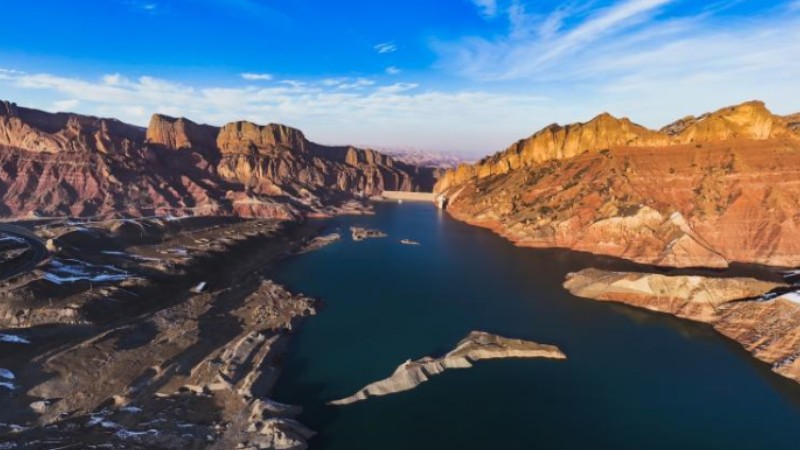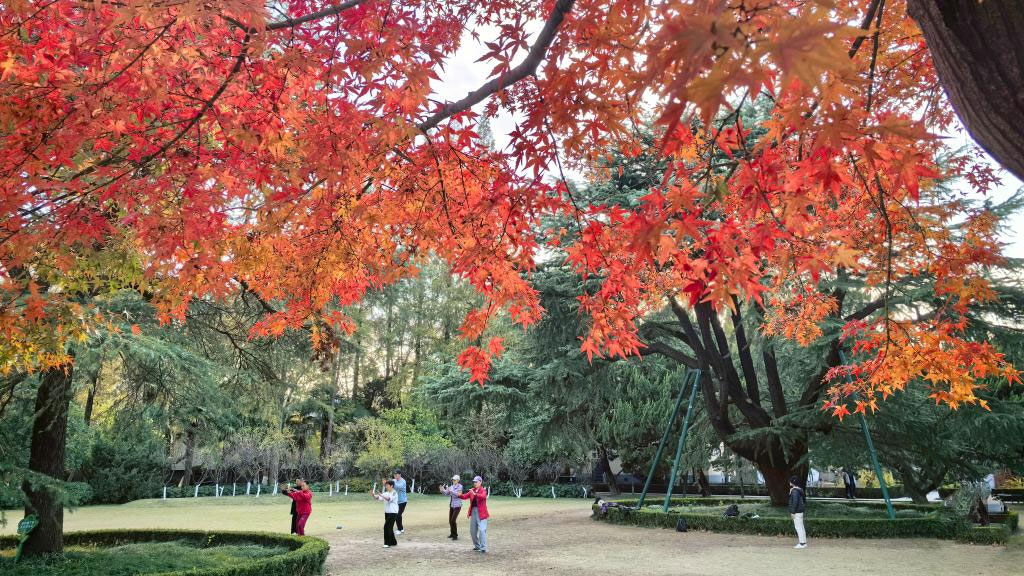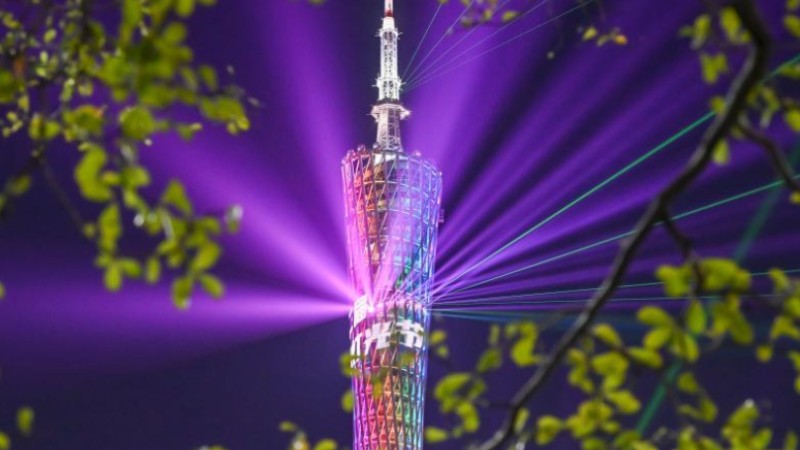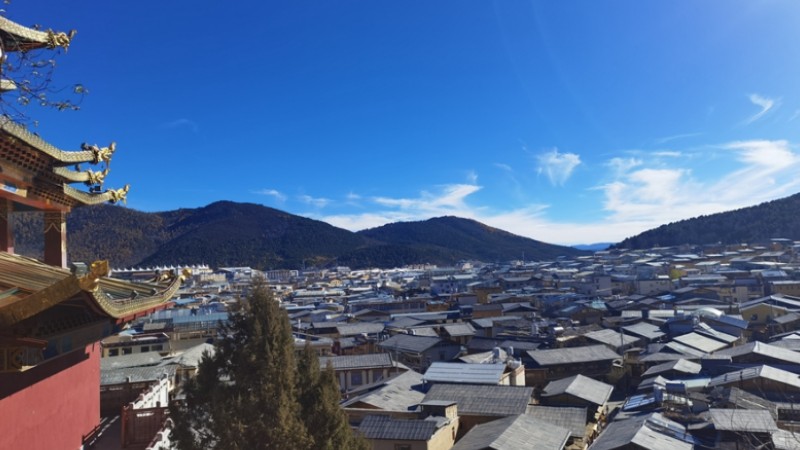1st batch of Israeli hostages, Palestinian prisoners freed as Gaza truce begins
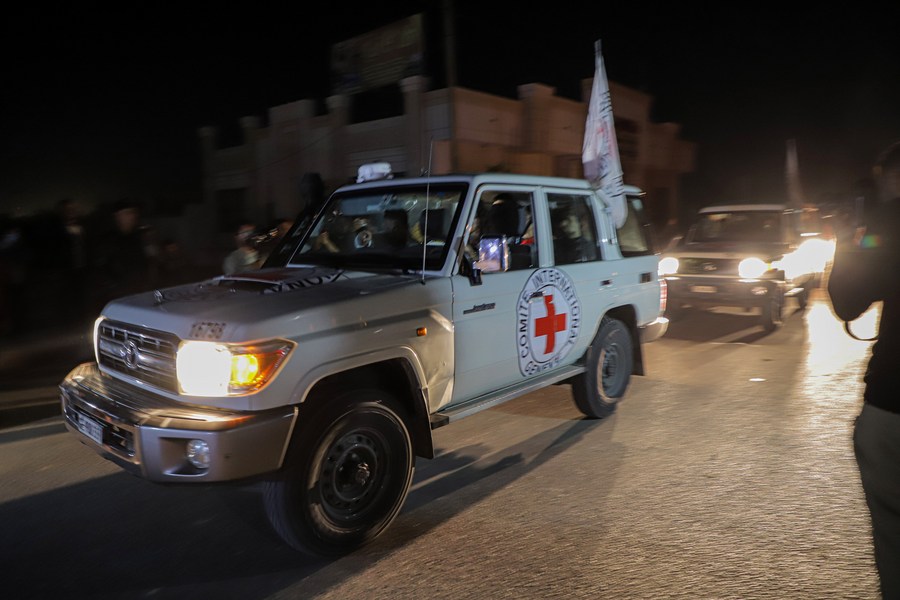
Vehicles belonging to the International Committee of the Red Cross transport released hostages toward the Rafah crossing in the southern Gaza Strip, on Nov. 24, 2023. (Photo by Rizek Abdeljawad/Xinhua)
GAZA/CAIRO, Nov. 24 (Xinhua) -- As a cease-fire with Israel entered into force, Hamas on Friday released 24 hostages, including 13 Israelis, while buses carrying 39 Palestinian prisoners departed at night from Israeli Ofer prison.
The 13 Israeli hostages, all children and women, were sent to Egypt from Gaza and then headed for Israel. After initial reception procedures, including a medical assessment, the hostages were transferred to Israeli hospitals to reunite with their family members, the Israel Defense Forces (IDF) has said.
An addition of 10 Thai and one Filipino citizens have also arrived at the Rafah crossing after being released from Gaza, Egypt's Al Qahera News TV reported.
Earlier in the day, a Palestinian source told Xinhua that the release of non-Israeli nationals was not part of the truce deal, adding that they were released without any conditions.
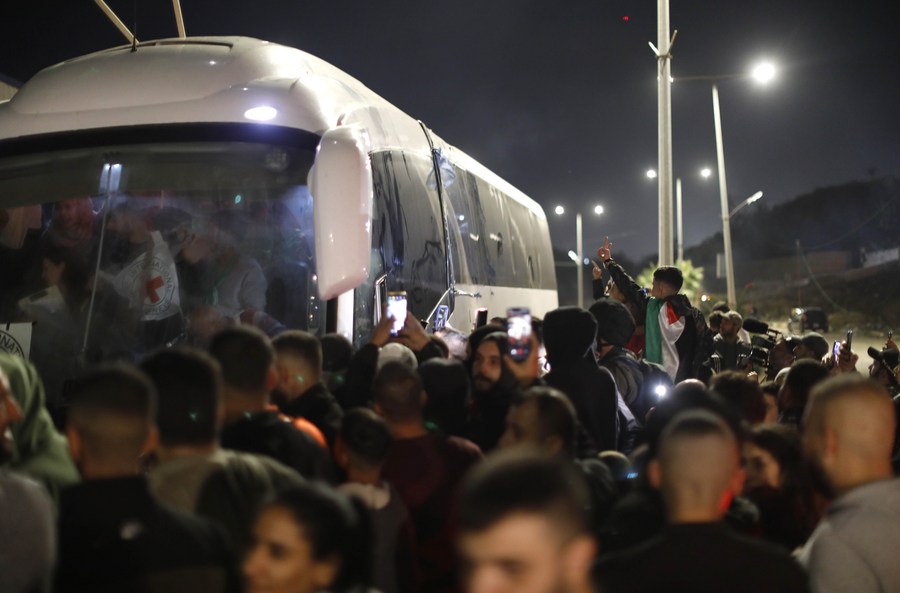
Released Palestinian prisoners are seen inside a bus in the town of Beitunia close to the West Bank city of Ramallah, Nov. 24, 2023. (Photo by Ayman Nobani/Xinhua)
The truce, mediated by Qatar and Egypt, took effect this morning at 7 a.m. local time (0500 GMT). As part of the deal, Israel released 39 Palestinian prisoners on Friday night from its Ofer prison near the West Bank city of Ramallah after receiving the hostages.
The Palestinian prisoners, including 24 women and 15 children, were transferred to the West Bank and East Jerusalem by vehicles belonging to the Red Cross.
According to the cease-fire swap, Hamas will release at least 50 Israeli hostages, mainly children and women, in exchange for 150 female and teen Palestinian prisoners from Israeli prisons.
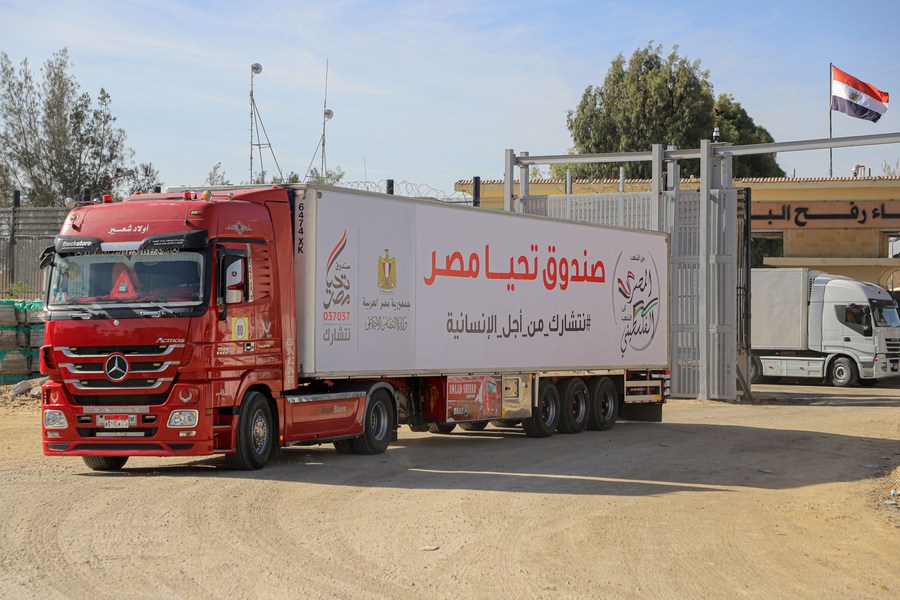
A truck with humanitarian aid enters the Gazan side of the Rafah crossing, on Nov. 24, 2023. (Photo by Rizek Abdeljawad/Xinhua)
Meanwhile, the cease-fire has enabled the delivery of more aid supplies to Gaza. According to a spokesman for the Gaza side of the Rafah crossing, 150 trucks carrying humanitarian aid had entered Gaza, including four carrying cooking gas and three carrying fuel.
In addition, Palestinian ambulances have crossed the Rafah crossing to the Egyptian side to transport the wounded and the sick for treatment abroad. Palestinians stranded in Egypt also began returning to Gaza.
On the other hand, when the cease-fire took effect early Friday, Palestinians across the Gaza Strip rushed to the streets to inspect their houses, check on their relatives, and try to recover and bury the dead.
Rescue workers and civil defense units have been deployed to retrieve the dead bodies from under the rubble of destroyed buildings.
However, even with a brief respite from the bombardment, Israeli forces on the ground fired bullets at the outskirts of the southern Gaza Strip and the main road leading to Gaza City and its north, Palestinian security sources and witnesses said.
At least two Palestinians were killed and others wounded while trying to return to their homes, which were not allowed by the Israeli army, Palestinian medical and security sources said.
"The dead and wounded people were transferred to the al-Aqsa hospital in Deir al-Balah city," the Hamas-run Health Ministry said in a press statement.
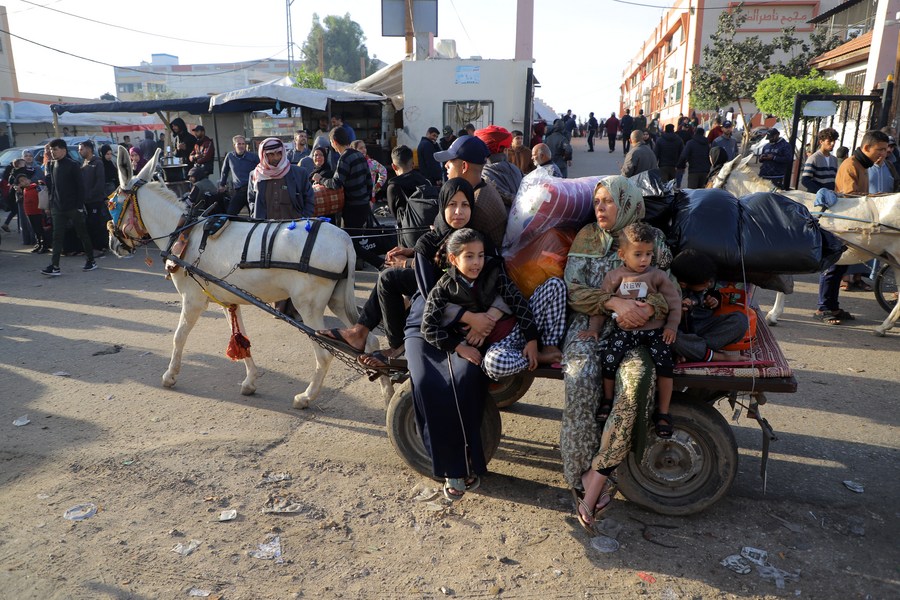
People are seen on a street after the first temporary humanitarian truce taking effect in the southern Gaza Strip city of Khan Younis, Nov. 24, 2023. (Photo by Rizek Abdeljawad/Xinhua)
Eyewitnesses told Xinhua that a number of displaced people from Beit Lahia, a city in northern Gaza, returned to their homes only to find them being completely destroyed.
Palestinian authorities called for the displaced to return to their homes in the northern strip, while Israel had warned that it would prohibit them from moving northward during the truce.
The Israeli forces stationed at a checkpoint separating northern and southern Gaza for weeks have placed additional cement barriers to prevent the movement of civilians from south to north in the enclave, said eyewitnesses.
Israeli forces invaded Gaza weeks ago and ordered residents of northern Gaza to move southward. The Israeli military now occupies much of the northern half of the strip and displaces some 1.7 million of 2.3 million Gazans.
Photos
Related Stories
- 2 killed, 5 wounded in Israeli airstrikes on S. Lebanon
- South African parliament votes to close Israeli embassy, suspend diplomatic ties
- Israeli ministers convene to vote on hostage deal
- Yemen's Houthi rebels launch long-range missiles toward Israel in new attack: statement
- UN special envoy urges de-escalation along Israel-Lebanon border
Copyright © 2023 People's Daily Online. All Rights Reserved.






